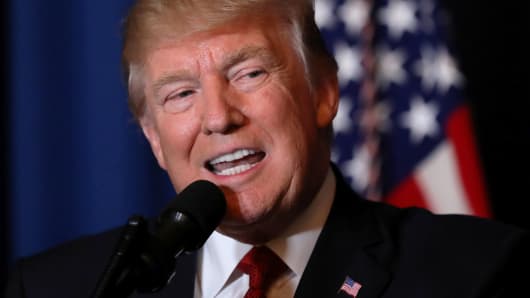So once again, Syrian dictator Bashar al-Assad unleashed chemical weapons against Syrian civilians.
And once again, the president of the United States took the podium to declare the chemical attack unacceptable—a breach of a moral line separating weapons of mass destruction from the more conventional atrocities to which Syrians have sadly grown accustomed.
We'd seen this little morality play unfold before. It might all have had a déjà vu quality, had November 8, 2016 not intervened.
Whereas President Obama spent weeks agonizing over the implications of the "red line" he had drawn in the Syrian sand, President Trump took prompt action.
The Ghouta chemical attacks occurred on August 21, 2013. President Obama decried them immediately. Secretary Kerry joined his saber rattling, promising a military response—albeit an "unbelievably small" one. They then turned first to the United Nations, then to Congress, seeking a way to back down—but to no avail. At the eleventh hour, a savior arose: Vladimir Putin offered Russia's services to oversee the removal of all chemical weapons from Syria. Assad and Obama agreed immediately; by mid-September the deal was done. The following year, Kerry certified that Russia had delivered fully: Assad possessed no more chemical weapons.
Of course, Kerry got it wrong. Last Tuesday, Assad was at it again. News and agonizing photos of a deadly gas attack surfaced quickly. President Trump, following his predecessor, decried it quickly and unequivocally. He then turned first to the United Nations, then to the American people, then to his military advisors. Within seventy-two hours of Assad's gas attack, U.S. missiles had taken out a key Syrian air base directly connected to the attack.
The message to Assad, Putin, and the world was clear: There's a new Sheriff in town.
Syria is a propitious place for President Trump to have sent that message, because President Obama's own Syrian message reverberated around the world.
The feckless American response to the 2013 Ghouta attacks prolonged and intensified the Syrian civil war, needlessly raising both death tolls and refugee flows. Russia's arrival laid the groundwork for a shift in the balance of power; a losing regime that "had to go" five years ago has become today's smart-money favorite.



